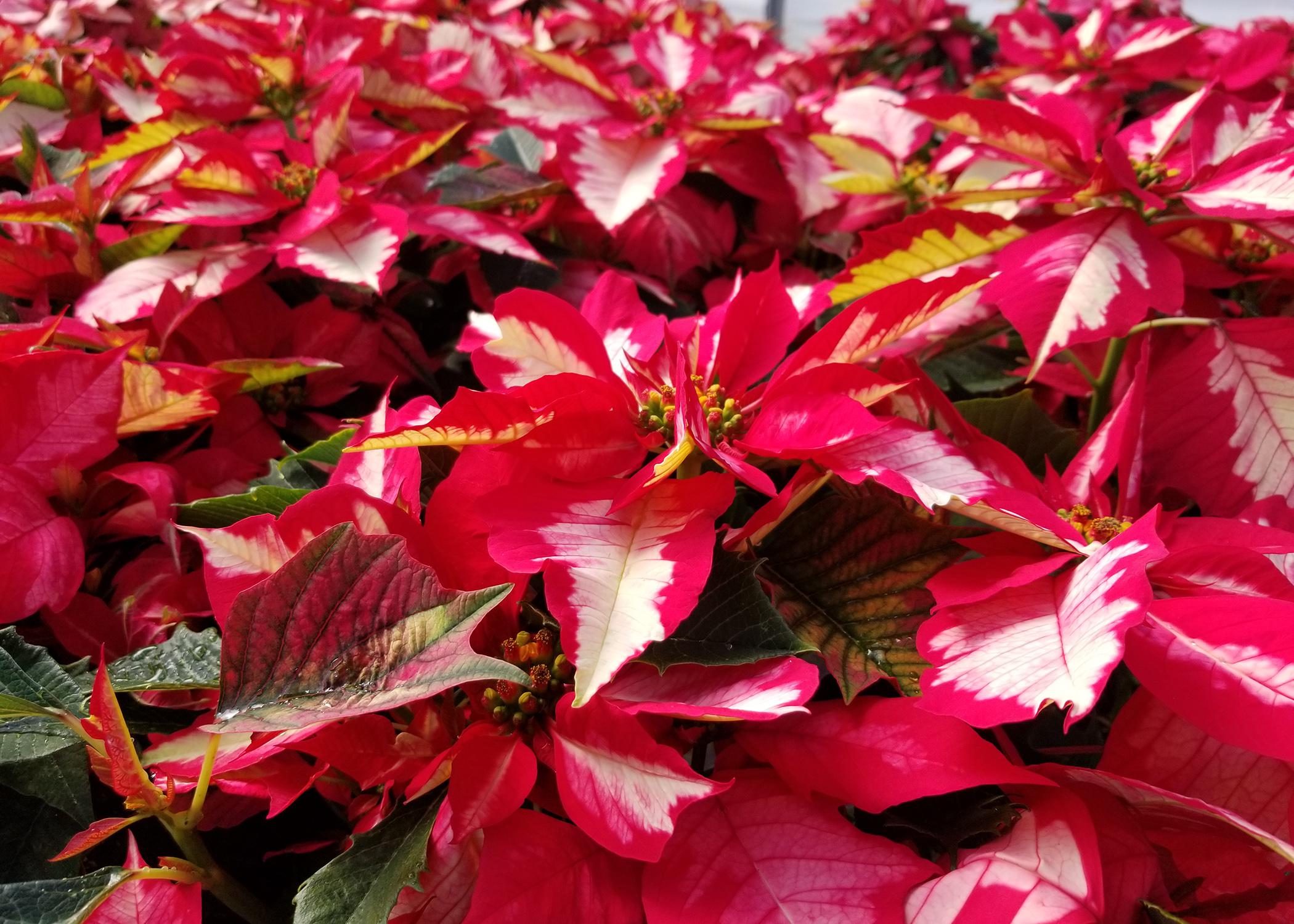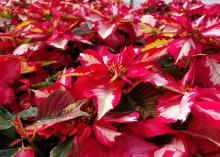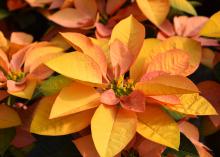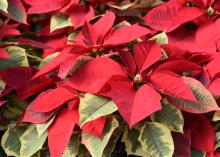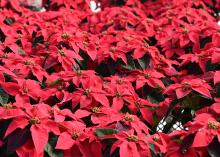Information Possibly Outdated
The information presented on this page was originally released on November 23, 2020. It may not be outdated, but please search our site for more current information. If you plan to quote or reference this information in a publication, please check with the Extension specialist or author before proceeding.
Abundant poinsettia colors bring beauty to holidays
This week, we’ll be celebrating Thanksgiving and the “official” start of the holiday season.
In this year of COVID-19, we will celebrate our holidays differently than in past years. But despite any accommodations we have to make, there’s one thing that will always be associated with the Christmas season, and that is beautiful poinsettias.
The range of poinsettia colors available is truly remarkable.
However, some folks have tried to expand the color palette by painting and dyeing in totally nontraditional and unnatural colors. Those people are really naughty and should get coal in their stockings!
Red is the traditional poinsettia color in many people’s minds. Let’s face it: A red poinsettia is beautiful. My favorite continues to be the traditional red.
But red is not the only color available. Now, we can purchase white, pink, maroon, speckled and marbled poinsettias. And many of these unexpected and unusual colors are not artificial.
Autumn Leaves is an unusual poinsettia with bright bracts that resemble leaves of the fall season. It displays a rich, golden-yellow color with small, pink flecks. The yellow and pink colors intensify as the bracts begin to mature.
A similar poinsettia called Gold Rush has bracts displaying a bold, golden-yellow coloration with fewer pink notes.
Marbled poinsettias offer a change from the standard solid colors.
Ice Punch has reverse red bracts and white centers. Now, there’s Sparkling Punch, which has pastel-pink bracts with a creamy-white streak down the center. This coloration stands out against the dark-green foliage.
Tapestry is a variegate selection that has grayish-green leaves with pale-yellow margins and bright, cherry-red bracts.
Red Princettia is a different breed of poinsettia. This hybrid is more compact than normal, with more bountiful, colorful bracts. The bracts look like they are edged in white.
Take your time when shopping for poinsettias, and don’t just grab the first pretty plant you find. Look for plants that are compact with good branching. Don’t be afraid to carefully pick plants out of the crowd and look at them.
Check for signs of stem and branch breakage. I like to buy poinsettias that are not sleeved and have the protective sleeves put on at check out. Never try to slide the shipping sleeves off; always tear or cut the sleeve off to avoid damaging the branches.
For at-home care, give poinsettias at least six hours of indirect sunlight a day combined with comfortable room temperatures. If you’re comfortable, then the poinsettias will be happy. Avoid temperature changes from drafts -- either cold or warm -- as these will cause the leaves and bracts to drop.
Poinsettias are sensitive to wet feet, so don’t overwater. Feel the top of the potting mix or pick the pot up to get a sense of the weight before adding water. When watering, remove the decorative sleeve and water in the sink, letting the pots completely drain. Use a protective saucer to protect furniture that the poinsettia is set on.
Despite the alarming memes that are going to be shared on social media, poinsettias are not poisonous to our pets. According to the ASPCA Animal Poison Control, eating poinsettia leaves will only induce GI tract irritation.
A more likely scenario would be you getting a skin rash or contact dermatitis from handling your poinsettia. Always wash your hands after handling your poinsettia.
As you shop this week, look for these and other gorgeous poinsettias at your local garden center to enjoy this holiday season.

